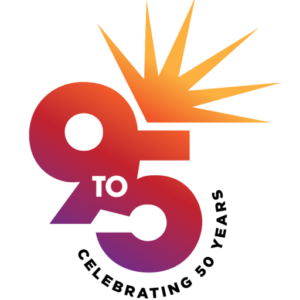Originally published by the Cosmopolitan
By Raquel Reichard
Three years ago, Shelby Ramirez Martinez accompanied her teenage daughter at a Colorado hospital for an emergency gallstone removal. A few days later, it was her aging father who would need medical attention. Without paid leave, Shelby needed to decide which days she would miss work as a hotel security officer and which mornings she’d send her 72-year-old father, suffering from vision problems, on a bus alone for his eye operations. The difficult decision of caring for an ill loved one or going to work is one that the 43 million U.S. workers without paid sick leave are regularly forced to make.
To bring light to the issue of paid leave, Martinez shared her story on a panel at the Women in the World summit last month. Here, she tells Cosmopolitan.com why she became a paid leave activist and why she believes this is a problem that plagues all women, especially Latinas.
How did your activism around paid leave begin?
I was a single mother who needed to care for an ailing daughter and father, and I did not have paid leave to ensure my security and peace of mind at one of the most debilitating times of my life. To support my loved ones, I needed to take two weeks off from my job. When I returned to work, I knew I wouldn’t get paid for an additional two weeks. I went a month without any income. I had urgent decisions I needed to make: Will I pay rent, or will I purchase the medication, healthy food, and pillows necessary for my family’s health, comfort, and well-being? It was a very difficult time, and these were harsh choices to choose from.
I opted for caring for my family, and the consequences of that choice impact me to this day. I almost got evicted. I lost my car. My electricity was going to be shut off. I was behind on all of my bills. It was so frustrating to know that helping my family put me at risk of losing my job. All of this made me curious about my rights as a worker, so I sought out 9to5, a nonprofit organization that aims to achieve working and economic justice for women.
What sort of activism do you do?
I sit on the board at 9to5 Colorado. I started as an intern in 2013, and I did more organizing then, knocking on on people’s doors, telling them about the need for family leave, and asking them to get on board with our movement. I was calling Colorado residents and urging them to come down to the Senate and rally with us on lobby days.
These days, as a board member, my work looks different. Now, I do more back-room things, like participating in meetings to ensure that the organization stays true to its mission statement to represent underrepresented women and families, and to strategize new ways to engage the community. I’m still rallying with folks at the Senate floor every chance I can get, trying to get paid leave passed in my state.
I’m doing a lot more public speaking. I discuss my experiences and how the lack of paid leave affects caregivers, especially those who already come from marginalized communities like women, Latinas, and those with low-wage jobs. It’s still unbelievable to think about how much I’ve been able to accomplish doing this work in such a short amount of time, from speaking at the Women in the World summit and receiving the Activist Champion Award from Family Values @ Work to personally meeting with President Obama and discussing the need and future of paid leave in this country. That day was especially incredible. I actually had no idea that I was going to meet him until I got to the White House. They told me and the other women I was with just moments before he came out. When he did, he greeted me by name and asked me how my father was doing. It was amazing, and telling, that the president of the United States knew my story and cared enough about it to speak with me. We spoke over lunch, at Chipotle of all places, about the financial burden unpaid leave places on already impoverished and working-class families.
Still, I want to do more. That’s why, at 51, I’m currently studying law and society, with a minor in women’s leadership, at Women’s College of the University of Denver. This work is critical, and I know that I can’t stop.

What do you hope to accomplish?
I’m hoping my work can help get paid leave passed in Colorado, but I also want to help business owners understand that paid leave isn’t just good for employees but employers as well. Workers are not going to be effective at their jobs if their minds are preoccupied with what’s going on at home, wondering if the ill father they sent on a bus got to the hospital all right, or feeling guilty about having to leave them alone. But when an employee is able to get the necessary time off, they can return to work with fewer worries and perform better at their jobs.
Ultimately, though, I want all states in this country to have paid family leave. I’m often asked if it’s embarrassing for me to make my financial hardships so public. But, for me, it’s really not. Someday, when my daughter has to take me to the doctor, when I’m too old to take myself, I want her to be able to take that day off with pay, so she’s not taking that money away from my grandchildren. And I want the same for my grandchildren, and their kids, and their grandchildren. I want to know that they, and all of the future generations of this country, don’t have to deal with the burden of unpaid leave. We need to be able to care for a critically ill family member without the risk of discrimination at our workplace. Deciding to love, support, and care for your family should not mean choosing a life of poverty.
Why do you want Latinas to care about this issue?
Most of the low-wage workers at my former job were Latinas. And that’s not exclusive to my hotel or the hotel industry. While Latinos make up 16 percent of the total U.S. workforce, they account for 24 percent of low-wage workers. These are the people, and groups like them, that have the most to lose without paid sick leave.
Even more, in Latino culture, we know how important it is to take care of our loved ones. The idea of making a decision that will directly harm our family is unfathomable. Women are the head of the household, and we are the ones who keep our family safe, secure, and together. But this is also an issue that is becoming increasingly important for Millennial Latinas as well. More Latinas than ever before are getting an education and joining the workforce. They often don’t go in knowing their rights because their mothers and grandmothers worked from home. But they have to. It’s a scary thought, but the truth is that they will likely need to take time away from work to deal with a serious personal or family illness.
How can readers protect themselves at work?
Do your homework. There are national and state laws that protect you as a caregiver and a worker, and it’s possible that your employer won’t tell you about them. The Family and Medical Leave Act (FMLA), for instance, requires employers to provide up to 12 weeks of unpaid leave for both you and a critical ill immediate family member. There are specifications, of course. For example, employees need to have worked for their employer for at least 12 months. But these laws and others do exist. Though they fall short in providing economic security, they do offer job security and the opportunity to take necessary time off. This is empowering information, and too few people know about it. But they need to, and I hope my work can help.

